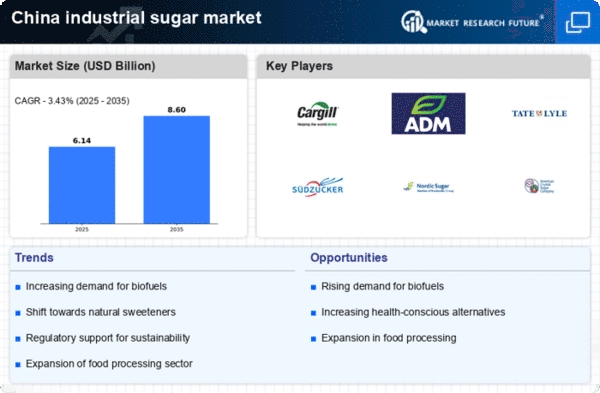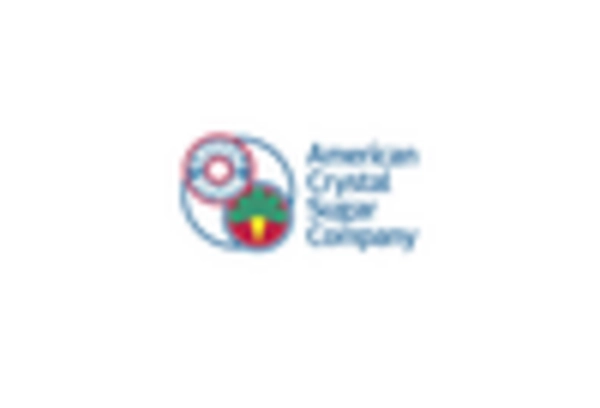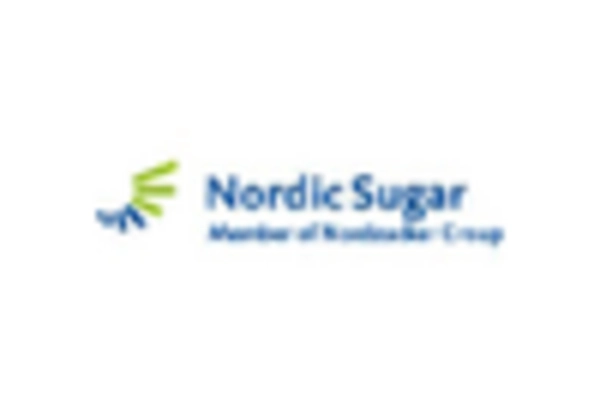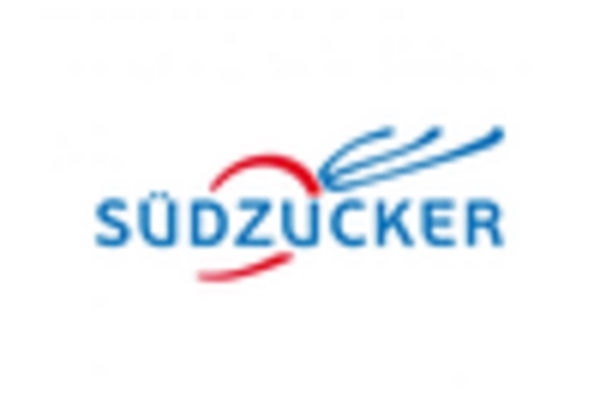Government Policies and Regulations
Government policies in China play a crucial role in shaping the industrial sugar market. The Chinese government has implemented various regulations aimed at stabilizing sugar prices and ensuring fair competition among producers. For instance, import tariffs on sugar have been adjusted to protect domestic producers, which influences market dynamics. Additionally, the government has introduced initiatives to promote sustainable agricultural practices, which may impact sugar production methods. As of 2025, these policies are expected to create a more favorable environment for local sugar manufacturers, potentially enhancing their competitiveness in the industrial sugar market. The regulatory landscape is thus a significant driver, as it directly affects production costs, pricing strategies, and market entry for new players.
Export Opportunities in Emerging Markets
China's industrial sugar market is poised to benefit from increasing export opportunities in emerging markets. As global demand for sugar rises, particularly in regions such as Southeast Asia and Africa, Chinese sugar producers are exploring new avenues for growth. In 2025, it is projected that exports could account for approximately 15% of total sugar production in China. This trend is driven by competitive pricing and the ability to meet international quality standards. Furthermore, the expansion of trade agreements and partnerships with other countries enhances the potential for Chinese sugar exports. This development not only supports the industrial sugar market but also contributes to the overall economic growth of the country, as it diversifies revenue streams for producers.
Consumer Preferences for Natural Sweeteners
There is a noticeable shift in consumer preferences towards natural sweeteners, which is impacting the industrial sugar market in China. As health consciousness rises, many consumers are seeking alternatives to refined sugars, prompting manufacturers to adapt their product offerings. This trend is reflected in the increasing popularity of products containing natural sweeteners such as stevia and agave syrup. As of 2025, it is estimated that the demand for natural sweeteners could grow by 25%, influencing the formulation of various food and beverage products. Consequently, the industrial sugar market must navigate this evolving landscape by balancing traditional sugar production with the rising demand for healthier alternatives. This shift in consumer behavior presents both challenges and opportunities for producers in the industrial sugar market.
Rising Demand from Food and Beverage Sector
The food and beverage sector in China is experiencing a notable surge in demand for industrial sugar, driven by the growing population and urbanization. As of 2025, the sector accounts for approximately 60% of the total sugar consumption in the country. This trend is likely to continue, as consumers increasingly seek sweetened products, including soft drinks, baked goods, and confectionery items. The industrial sugar market is thus positioned to benefit from this rising demand, as manufacturers strive to meet consumer preferences. Furthermore, the expansion of the food processing industry, which relies heavily on sugar as a key ingredient, further propels the growth of the industrial sugar market. This dynamic indicates a robust outlook for sugar producers and suppliers in China, as they adapt to the evolving needs of the food and beverage sector.
Technological Innovations in Sugar Production
Technological advancements in sugar production are transforming the industrial sugar market in China. Innovations such as precision agriculture, automated processing, and improved extraction techniques are enhancing efficiency and yield. As of 2025, it is estimated that these technologies could increase sugar production efficiency by up to 20%. This improvement not only reduces costs for producers but also addresses environmental concerns associated with traditional sugar farming practices. The adoption of such technologies is likely to attract investments in the industrial sugar market, as companies seek to modernize their operations and meet the growing demand for sugar. Consequently, the integration of technology into production processes is a pivotal driver of growth in the industrial sugar market.
















